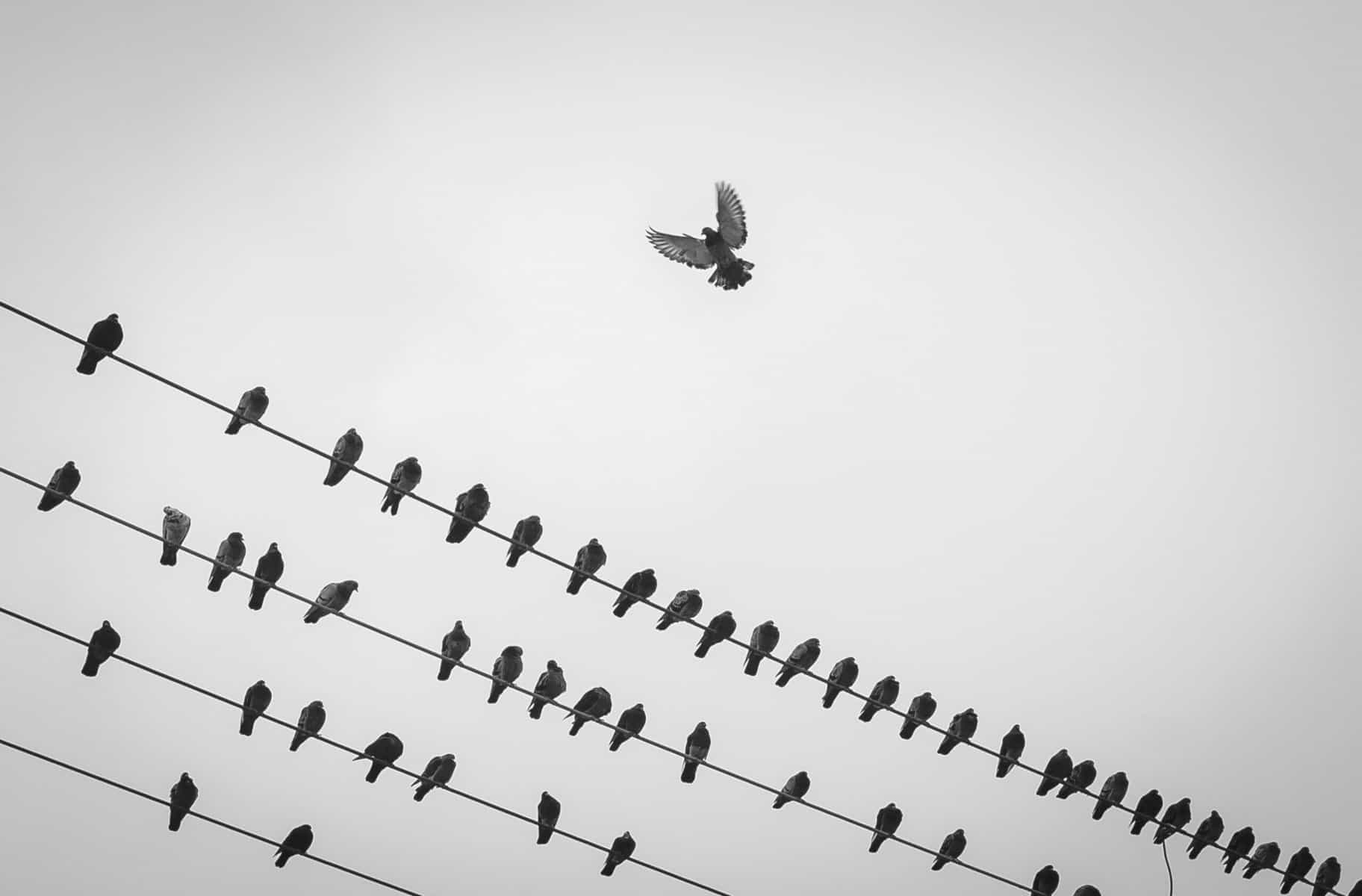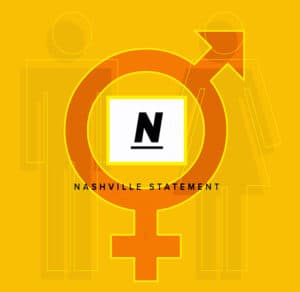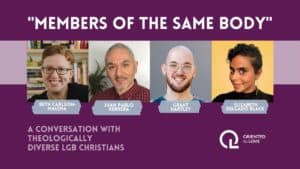A celibate gay Christian speaks of the pain that lies on both sides of the church’s closet door
The evangelical church is a strange place to be a sexual minority. There are so many different attitudes crammed into a tight space—the person who reviles you, the person whose heart breaks for you, the person ready to cast demons out of you, the person ready to scout out a boyfriend for you—all sitting side by side sharing a Communion cup. There are people scattered across the political spectrum, across the theological spectrum. And then there’s you, tiptoeing through the minefield.

It’s easier when you’re in the closet to befriend all these people equally. You learn to celebrate the good in each of them, to know them beyond their views of sexuality, to forgive the ways they accidentally trample your heart. When they say “gay,” you learn to pretend that they’re talking about someone else. You learn to speak and think of yourself in the third person.
And besides, what do you call yourself when you’re gay and celibate in the church? There’s no easy word for it, no label that doesn’t confuse people or carry a heavy suitcaseful of connotations.
When you say “gay” in the church context, many Christians assume you mean the active pursuit of gay sex, probably indiscriminately and with a variety of partners. They envision the most promiscuous edge of the LGBTQ community, the archetype by which the rest of us are measured. At the very least, being “gay” means that you’ve adopted a way of life, a set of behaviors, that you are having sex or intend to have sex at some point in the future.
But when I hear most people outside the walls of the church use the word gay, they’re talking about an orientation, the nature of a person’s attractions, not about a specific sexual act. By this definition, gayness feels like a biographical detail as involuntary as your birth date or your dislike of anchovies. Being gay doesn’t mean you’re actively having sex, in the same way that being straight doesn’t mean you can’t be single and committed to sexual abstinence. Yes, most people who identify as gay intend to pursue their orientation through sexual expression, but so do most straight people.
In an attempt to clear up this confusion, evangelicals often use the label “same-sex attraction”—SSA for short—to distinguish sexual inclination from sexual behavior. While well-intentioned, this label is also shackled to weighty connotations. The language of SSA was popularized by the Christian ex-gay movement, which vigorously promoted orientation change as the best hope for gay Christians, even while evidence piled up that such change was extraordinarily rare. By talking in terms of attraction instead of sexual orientation, ex-gay advocates were better equipped to treat homosexuality as a passing phase, a problem that might come and go as readily as a foot cramp.
In the end, the ex-gay movement didn’t turn out straight Christians. It turned out people who were confused and disillusioned and still gay, people inured to promises that never seemed to come true. Were they failing God, not wanting to change enough, not believing enough? Or was God failing them? Was he just a sadist, a fairy tale, an opiate for the masses that began with euphoria and ended with a brutal letdown?
The diminishing popularity—and, in some cases, the total collapse—of ex-gay ministries in recent years reflects more than just a changing cultural landscape. It speaks to decades of human casualties, people damaged by the broken promise of change. Many LGBTQ survivors of ex-gay theology have given up on their faith altogether, choosing to hate God rather than to hate themselves. Others cling to faith with tired, bloodied fingers, like castaways clinging to driftwood in a storm, able to believe in God only in spite of what the church has told them.
If the only hope the church can offer to sexual minorities is the hope of orientation change, we have a weak gospel indeed.
I don’t mean to disparage everything about ex-gay ministries. I trust they’ve done some good even in the midst of their incredible damage. And I do believe orientation change is possible, just like I believe in parting seas and multiplying bread and water turned to wine. But it’s irresponsible for us to treat miracles like everyday occurrences. If we do, the miracles lose their wonder when they come, and we shatter thousands of fragile hearts as we promise miracles in vain. If the only hope the church can offer to sexual minorities is the hope of orientation change, we have a weak gospel indeed.
Because of this linguistic history, I couldn’t help cringing when people referred to my sexual orientation as “same-sex attraction.” What I tried not to hear them saying—what I sometimes couldn’t help hearing—was “This is just a phase you’re going through. Every moment since you hit puberty, the nature of your thoughts, your unremitting and exclusive attraction to men—I understand it better than you do. I know it’s mercurial. I know it could all go away if you prayed harder, if you believed more.”
It had taken me years to realize that God never promised the orientation change my Christian community was promising. Their replacement of “gay” with “same-sex attracted” made them feel less guilty about the painful road their theology demanded of me, but it did nothing beneficial for me. Despite its efforts to free me, the language of SSA simply left me feeling trapped.
There were other ways of naming me, long circuitous titles like “man committed to celibacy whose sexual attractions are exclusively for other men.” I appreciated the clarity of these gestures and the impulse to resist over-simplistic labels. But they made me feel like someone who needed to be euphemized or explained away, like the embarrassing second cousin everyone is apologizing for at the family reunion. These carefully crafted titles reminded me that many of my Christian sisters and brothers would be able to accept my sexual orientation only once they’d been reassured that I was choosing not to act on it.
If they accepted me at all, that is.
The beauty of staying in the closet was that I didn’t have to choose which word to use. I didn’t have to risk confusing or offending anyone. I didn’t have to watch the shock in their eyes, or the pity, or the disgust, as I hung a label around my neck and left them to fill in the blanks.
I called myself “gay” in my own head, because it was the best word I knew to describe the world I occupied. It meant that I shared an important piece of my life story with others in the LGBTQ community, that my experience of sexuality defied the experience the heterosexual majority had trained me to expect. I called myself “gay” because I was tired of euphemizing, tired of being ashamed.
But outside my head, among the people I knew and loved, I called myself nothing at all.
“A story I could fit into”
When I worked for a church in upstate New York, my first year after college, one of my many jobs was to curate our church library. I would categorize them, print labels for them, paste checkout cards on their inside back covers, and shelve them. This meant I needed to know what the books were about, which gave me an excuse to become familiar with vast swaths of Christian nonfiction I might have otherwise ignored.
There were three categories in our library that I kept an eye on with particular interest. “Sexuality” (pronounced “homosexuality”) and “Singles” lived side by side, two anemic rows that couldn’t fill up an entire shelf even by their combined power. “Men” lived in a shelf and a half at shoulder height, just on your right as you came in the door. There were books I loved and books I despised within each of these categories. But in the end, all three categories taught me the same lesson:
I didn’t belong.
Predictably, the books on (homo)sexuality were a bit monochromatic. The books that made it onto our shelves were mostly either defending the traditional theological stance against gay sex or promoting the fluidity of sexuality and the possibility of orientation change. During my tenure, we did bring in a few books that pushed the boundaries of our church community’s conservatism on the topic, books calling for a love and empathy that transcended our theological stances. Yet even these books were addressed to straight Christians. They were about me, not for me. There was nothing in them that taught me how to thrive as a celibate gay person in the church.
“Singles” followed alphabetically after “Sexuality,” and it might have seemed like a logical place to look for tips on healthy, God-honoring celibacy. But as any church librarian can tell you, books on singleness are usually books about how to stop being single. Rarely do you find a book about choosing to pursue singleness, about regarding it as a blessing and a calling. In my curatorial quest to categorize everything, I had an awful time trying to distinguish between the “Singles” books and the “Dating” books. They were all about the same things, and they all started with the same assumption: that singleness is a transitory phase, something you endure for a season and then shed like a used-up skin. Homosexuality and singleness. The two categories I seemed likely to live within for my entire life were the same two categories whose books could teach their members only how to escape.
Homosexuality and singleness: The two categories I seemed likely to live within for my entire life were the same two categories whose books could teach their members only how to escape.
The one category whose books wanted me to remain a member of its ranks was “Men.” Our library’s books on the art of Christian manliness invited me to become not less of a man but more of one. The authors had taken the time to understand their male subjects, to consider how a man’s unique wiring might bring glory to God.
But these books, as it turned out, weren’t about me at all. They were about men who were “manly” in the usual cultural senses, men who loved contact sports and daring adventures and female bodies. The authors talked as if every boy had grown up wrestling and burping the alphabet backwards. They offered up definitions of Christian masculinity—our God-given nature and desires and callings—that seemed to have nothing to do with me.
I could have blamed the library crisis on a poor selection of books, I suppose. But what I saw on those shelves simply confirmed what I had already experienced in the church at large. That our men’s ministries, our singles ministries, even our conversations about sexuality, weren’t meant for someone like me.
I’ve never attended a men’s breakfast at which I didn’t feel like an impostor. We’ll barely be lined up at the buffet before the men on either side of me have launched into a topic I know nothing about, something like big game hunting or car maintenance. Just moments after I bypass the dappled, greasy sausage links, someone will remark that the abundance of meat on the buffet line proves this is a men’s event. While we eat our manly meats, the special speaker will instruct us that our families are our greatest calling as men—and if not our families, then our future families, embodied by our fiancées and girlfriends.
For those of us who don’t yet have girlfriends to pursue in service of this calling, men’s ministries can be supplemented by singles ministries. These are like speed dating services, but with higher success rates and less social stigma. It’s fair to recycle the singles ministry curriculum every few years, because anyone who stays in the ministry longer than that has obviously missed the point.
I don’t mean to suggest that these ministries have maliciously excluded people like me or to imply that the current state of identity-based ministries in the church is necessarily a bad one. It’s inevitable that in catering to the needs of some people, we will bypass the needs of others. If some men are edified by the affirmation of their calling to family and their stereotypically masculine traits, I celebrate that. If some singles feel supported by conversations that regard them as pre-married-people, I won’t begrudge them that support.
But sometimes I wish people would tell a story I could fit into.

An American author, playwright, and songwriter, Gregory spent fifteen years growing up in the Muslim neighborhoods of Southeast Asia, in the shadow of a golden-domed mosque marked by a spire with a silver crescent moon. The son of two committed Christian teachers, Greg learned from a young age to look for God in the world around him. He read Shakespeare’s Hamlet at age 8, learned to speak several languages, and published his first short story while still in high school. At age 18, he returned to the United States to pursue his education, earning a bachelor’s degree in communication with emphasis in English literature—and graduating as valedictorian of his class. Today Gregory is a PhD student and part-time English instructor at Penn State University. He is also an Oriented to Love alum.
This excerpt is taken from chapter 5 of Single, Gay, Christian by Gregory Coles. Copyright (c) 2017 by Gregory J. Coles. Used by permission of InterVarsity Press, P.O. Box 1400, Downers Grove, IL 60515.



One Response
Gregory Cole, thank you for this excerpt. I wonder, in the face of the recent move of inclusion of LGBTQ in churches why be celibate? Why not marry and move from celibate to active in a relationship?